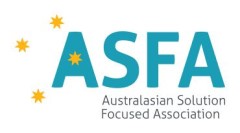Abstract
This study aims to adapt Solution Building Inventory (SBI) to Turkish and examine its psychometric properties. The study group consisted of 278 individuals (195 females and 83 males), whose age range was between 18 and 23 years old. Solution Building Inventory, Dispositional Hope Scale, and Positive and Negative Affect Scale were used as measurements. The results of the exploratory factor analysis showed the suitability of the data for factor analysis and revealed a two-factor structure explaining 49.38% of the total variance. Confirmatory factor analysis findings showed that the model had a good fit in the 11-item and two-dimensional structure of the scale. Besides, the correlation coefficients of the relationship between the SBI and other scales were expectedly provided equivalent and convergent validity. In reliability analyzes, the Cronbach alpha internal consistency coefficient of the scale was found to be .85 for the scale in general, while it was calculated as .78 for the supporting solutions sub-dimension and .85 for the creating solutions sub-dimension. As a result, SBI is a measurement tool with proven validity and reliability in Turkish.
Recommended Citation
Arslan, Ümüt; Okur, Sinan; and Smock Jordan, Sara
(2021)
"The Validation of Solution Building Inventory in the Turkish Population,"
Journal of Solution Focused Practices: Vol. 5:
Iss.
1, Article 2.
Available at:
https://oasis.library.unlv.edu/journalsfp/vol5/iss1/2




